
Roseola is a mild viral infection which typically affects infants and small children. It predominantly occurs in children between 6 months and 2 years of age. However, even the adults may be affected. It features with skin rash and increased body temperature. The disease is not so serious apart from fever which may be rather high. The treatment of roseola includes plenty of bed rest, lots of fluids and medications which are administered to reduce and control fever. The recovery time lasts several days and there are no complications.
Causes of Roseola
As it has been already mentioned roseola is a viral infection. It is caused by Human herpes virus 6 (HHV-6) and human herpes virus 7 (HHV-7). The virus spreads from one person to another via oral secretions. Sneezing, coughing and exchange of saliva contribute to the spread of the infection. Children with weak immune system are more susceptible to roseola and carry higher risk of getting the infection.
Symptoms and Signs of Roseola
The incubation period for roseola lasts from 8 to 10 days. The disease typically starts with high body temperature. This is, actually the first sign of the infection. The child with fever is highly contagious and any contact with other children may cause further spread of the infection. The fever may be a high as 103.5 degree F or even go up to 106 degree F. Increased body temperature lasts approximately 4 to 5 days. Additional symptoms of roseola are runny nose, sore throat, sneezing and coughing. Some children suffer from mild diarrhea and loss of appetite. Roseola may additionally cause puffy eyelids and swelling of the occipital lymph nodes. All the affected children are generally irritable and feel exhausted. Skin rash typically develops once the fever has subsided. The rash in roseola consists of red and pink spots with a white ring around them. If the skin changes are pressed they turn white. The rash usually affects the face and arms and it withdraws spontaneously after 2 to 3 days.
Treatment for Roseola
The diagnosis cannot be properly set until the rash occurs. Diagnosis of roseola is set due to clinical manifectations of the disease and physical examination of the child. Typical rash and swelling of the lymph nodes are essential in setting of the diagnosis.
There is no specific treatment for roseola. The symptoms withdraw on their own and only fever must be treated with specific medications such as acetaminophen and ibuprofen. The child is supposed to stay in bed and drink lots of fluids.
Prevention of Roseola
There is no vaccine to prevent roseola and the only way to prevent disease is to keep the child away from other children suffering from respiratory infections. This is hard to be performed and many kids do actually catch the infection. It is essential to prevent febrile seizures and this can be successfully achieved if the fever is reduced on time.


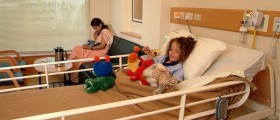
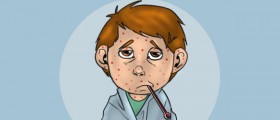


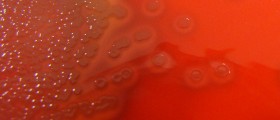



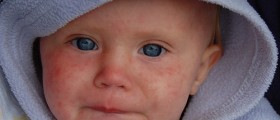

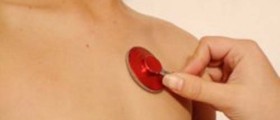

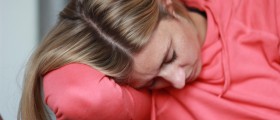


Your thoughts on this
Loading...